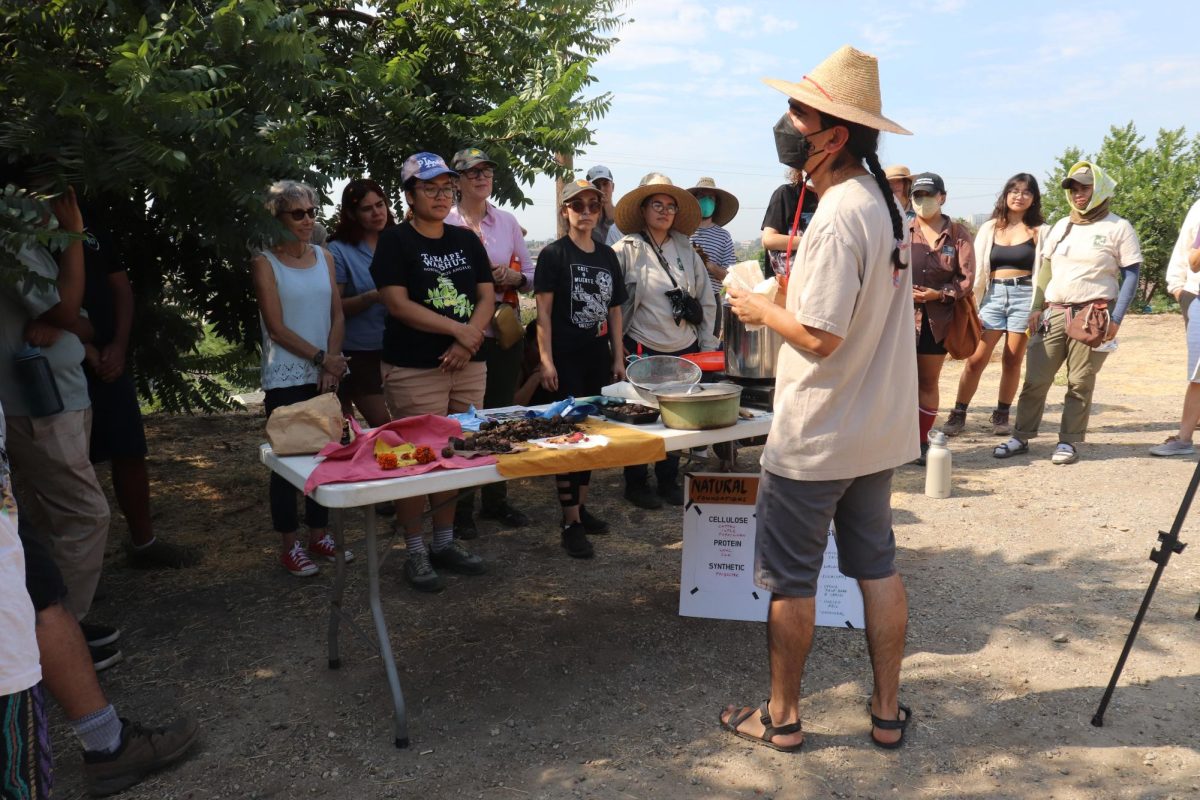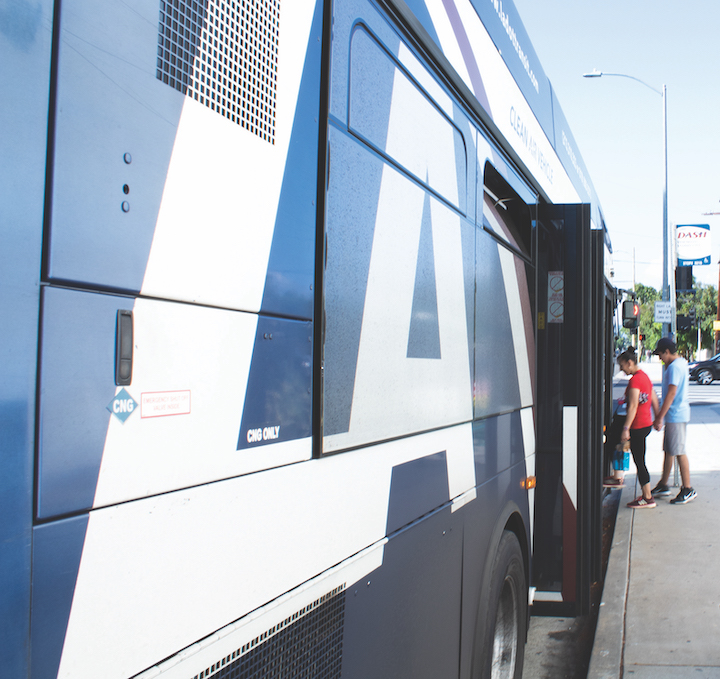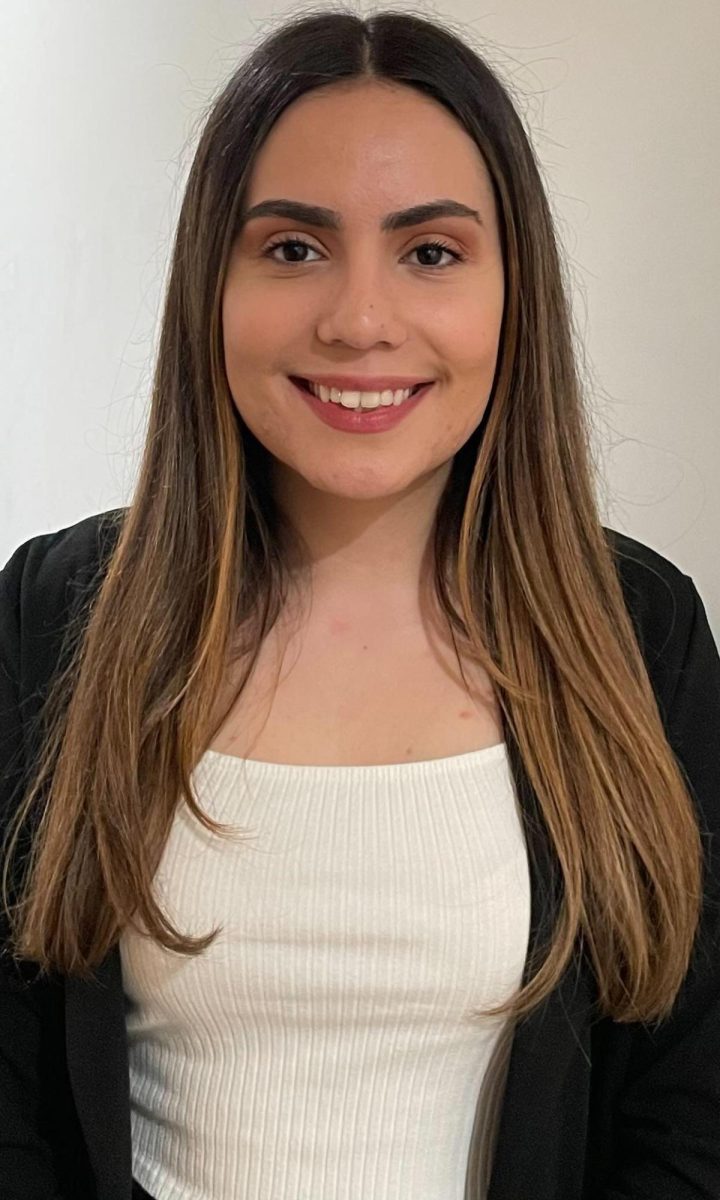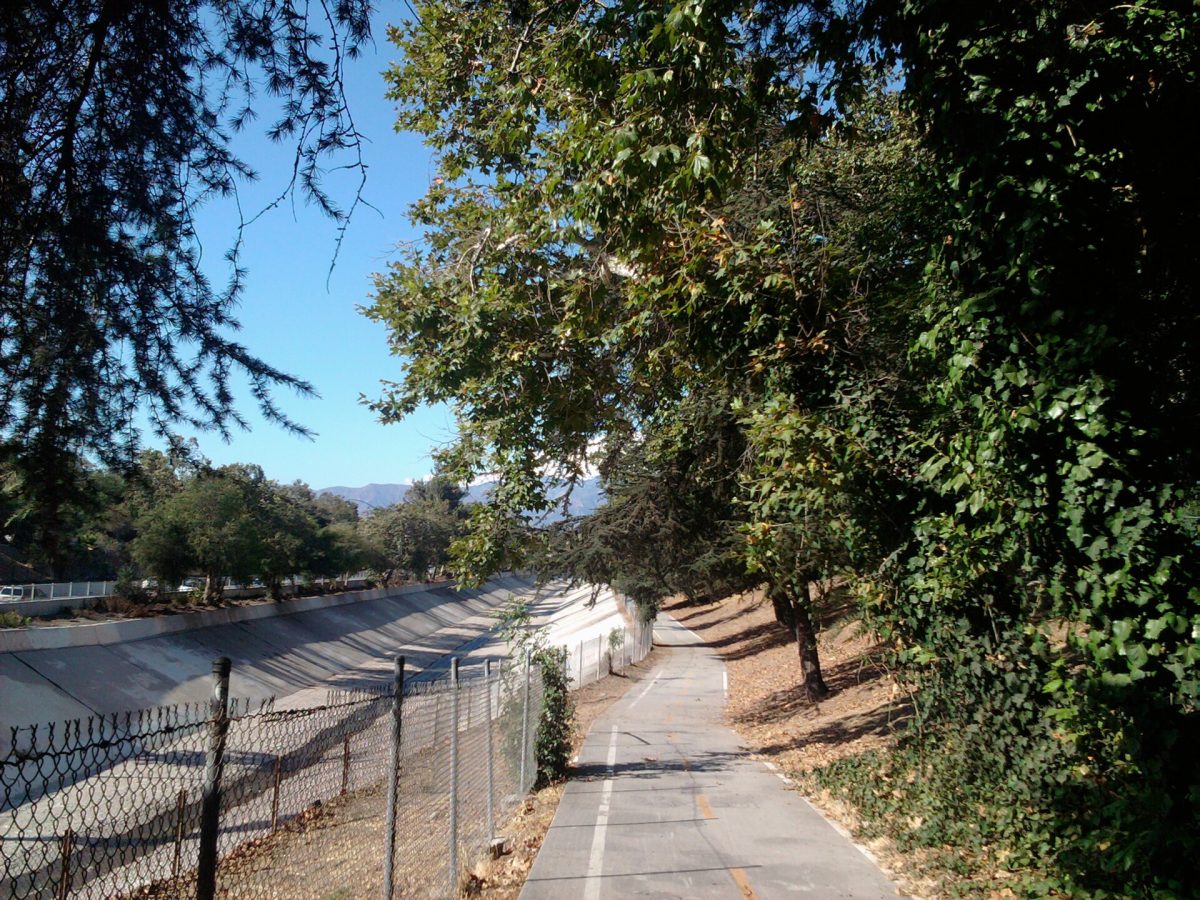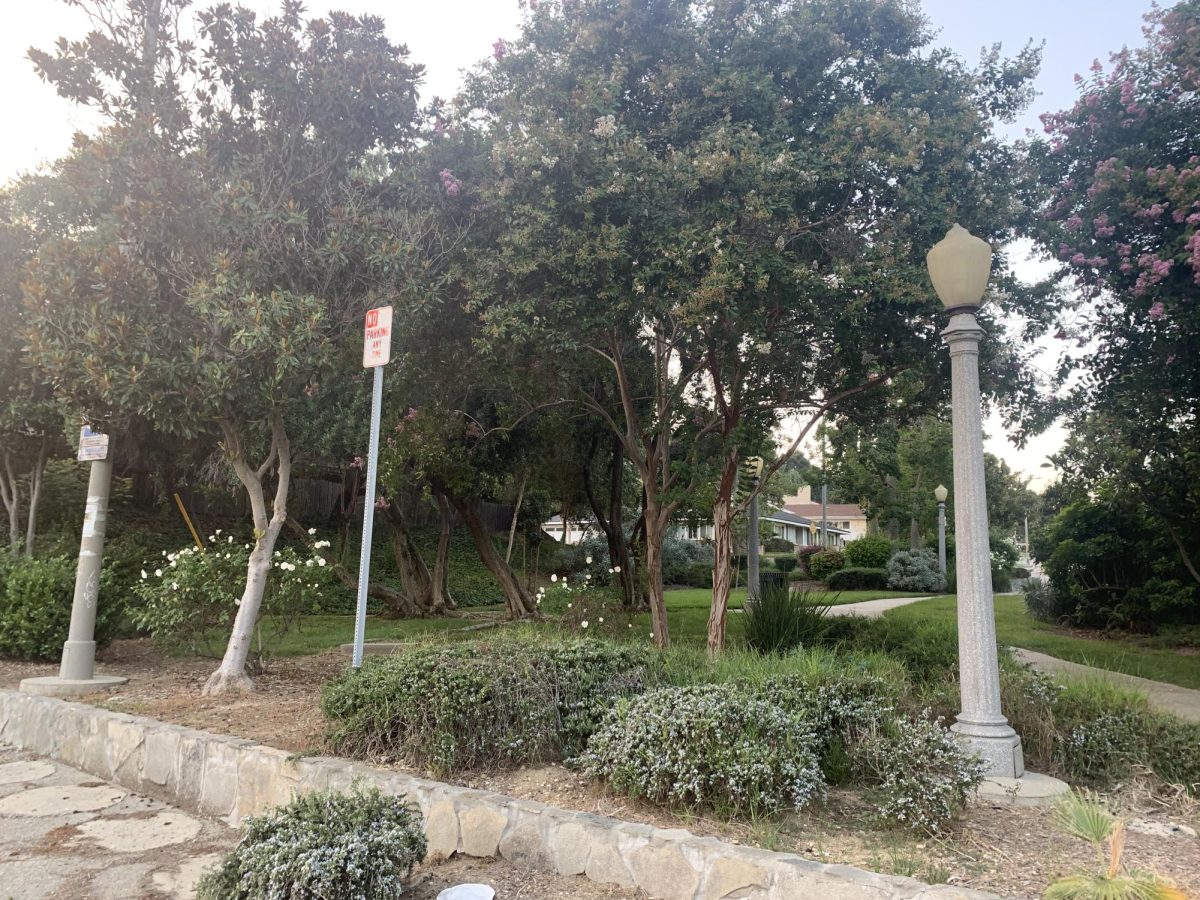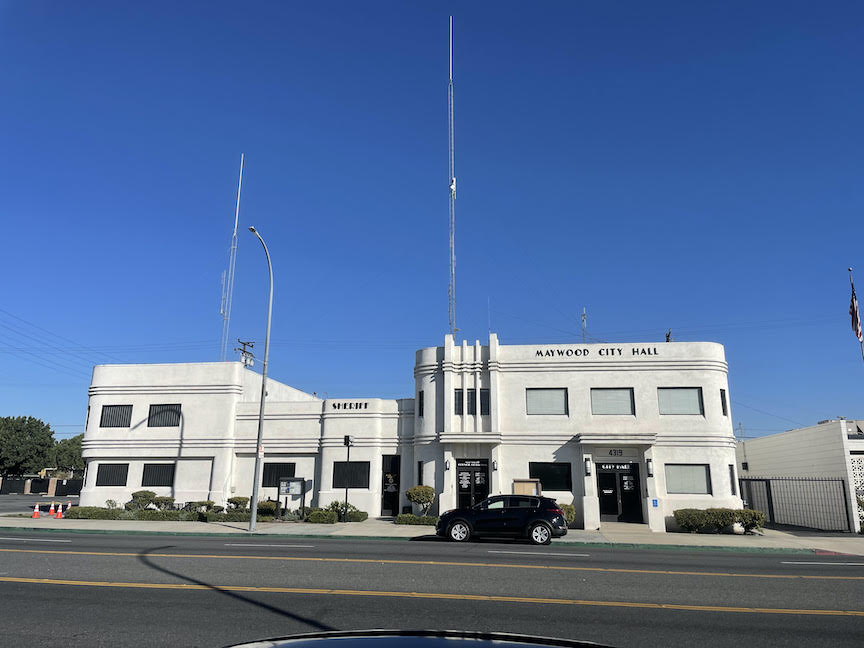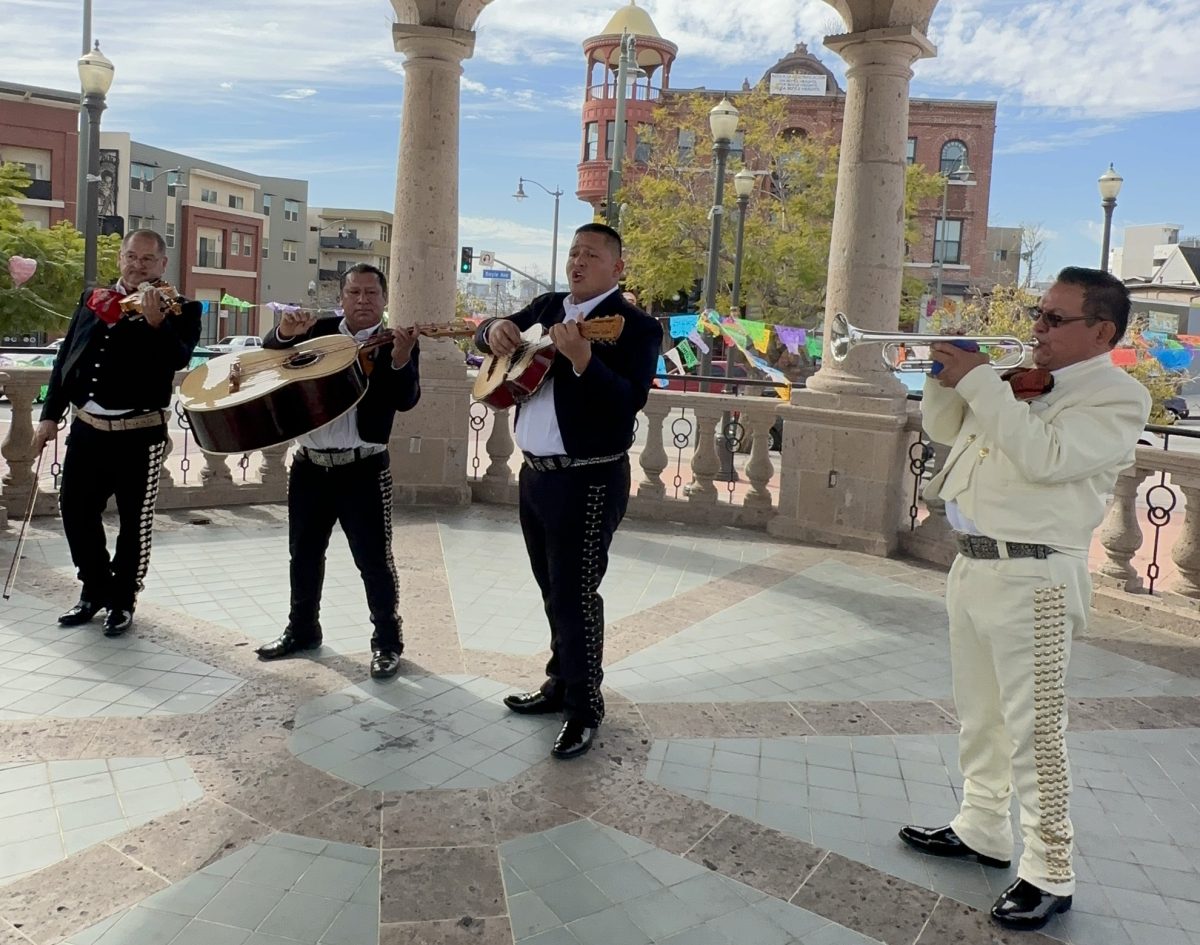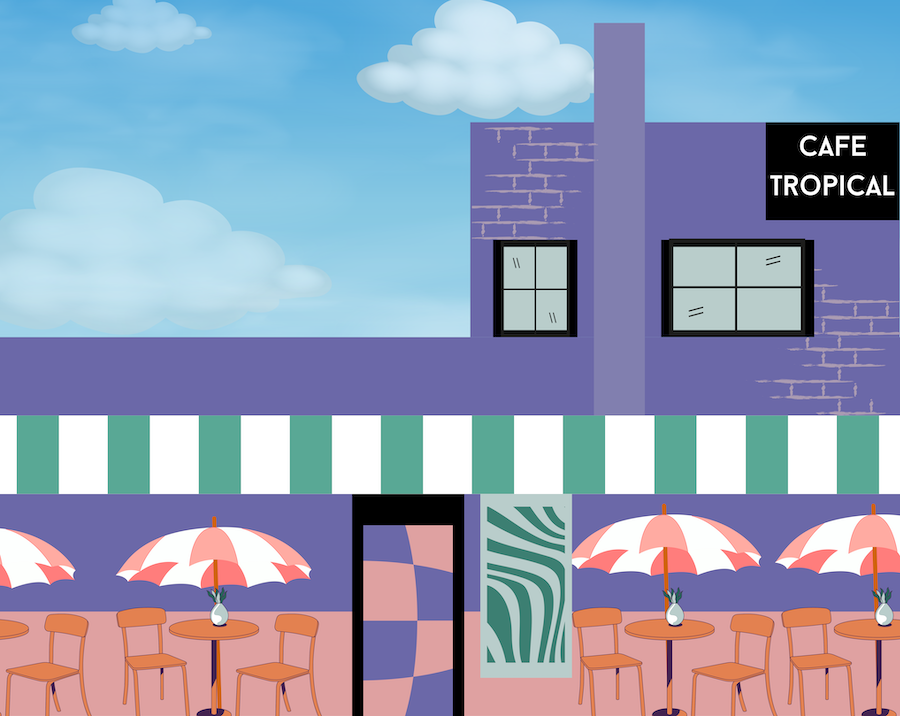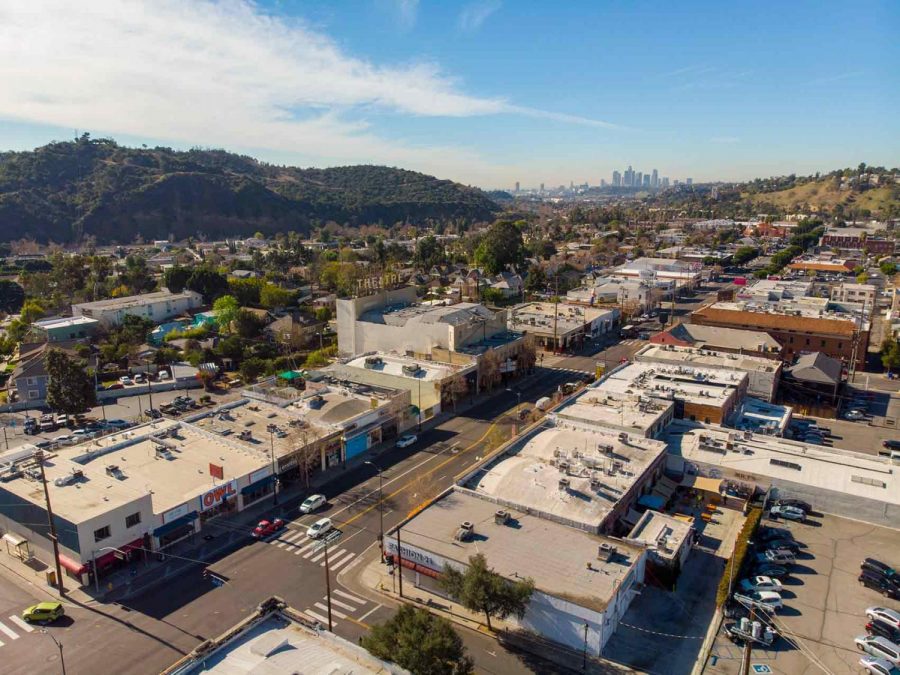The concrete jungles of the Eastside and Northeast Los Angeles call for more trees and wildlife.
That’s why North East Trees (NET), a nonprofit organization based in the Cypress Park neighborhood, plants trees in marginalized neighborhoods with dense populations.
One of its many projects includes planting 1,500 native and acclimated trees in neighborhoods such as El Sereno, Lincoln Heights and Boyle Heights.
A 2022 study conducted by UCLA found that the air quality of low-income communities contained more pollution, mainly from tailpipe emissions and smog from vehicles. These pollutants disproportionately affect neighborhoods with more people of color, according to Yale Climate Connections.
“Trees have the ability to improve air quality by capturing greenhouse gasses like carbon dioxide, carbon monoxide [and] photons,” said Aaron Thomas, NET’s director of urban forestry.
NET also works to plant trees at Cal State LA. When the campus was first built, it had mostly non-native plants on campus such as eucalyptus trees, which are detrimental to the local habitat as an invasive species, Thomas said.
“They can injure people or damage property. And [they are] extremely flammable, so if they were to ever catch fire, [you would] have a big fire danger because of that,” he added. “We want the students of Cal State to feel proud of where they are from, this part of the world, this part of the country, this part of the state of California, and for our universities, our local universities, to reflect the culture and history of where we are.”
Local residents and students said they appreciate efforts to bring more green space to the Eastside, including planting more trees.
“I feel like it adds more life to the campus,” said Cal State LA student Aldana Dandova.
A study done by the National Library of Medicine found numerous beneficial psychological impacts of green space and trees such as significant decreases in stress, anxiety, anger, and fatigue.
“I just believe deeply in my heart that the person who is surrounded by greens and who can embrace a tree…will be less stressed even in difficult economic [or] family situations,” said Chloé Renée Ziegler, NET’s vice president.
Besides planting vegetation in low-income areas, the organization also educates volunteers about new career paths related to NET’s work.
“So that is a very big part, to involve people: Not just to come with a truck, plant trees, and say goodbye, but to continue a relationship with those neighborhoods,” Ziegler said.
On Sept. 7, the organization held a workshop on how to extract dye from black walnuts to the public. Events like this help individuals learn more about the local environment and develop a passion for environmentalism.
“We build and keep relationships alive and strong through communication, long-time partnerships, and our work. There has to be trust built from both ends. It is a constant living relationship,” said William Guerrero, an Urban Forestry Manager for NET. “We want to make sure we hear the community’s needs and collaborate with leaders in that community that want to see positive work done for all.”
More information about NET and its events can be found at https://www.northeasttrees.org/

